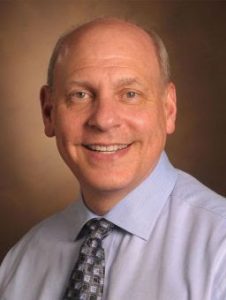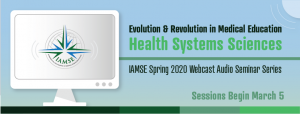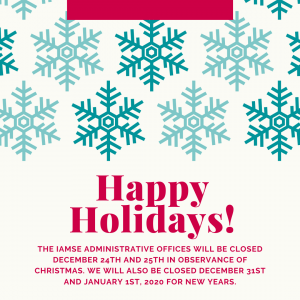[The following notes were generated by Michele Haight, PhD.]
IAMSE Webinar Series, Winter 2020
Speaker: Paul George
Title: “Integrating Opioid Use Disorder and Medication Based Treatment into Undergraduate Medical Education”
Series: How is Health Science Education Tackling the Opioid Epidemic?
- Rhode Island is the smallest state but one of the hardest hit by opioid overdose deaths.
- Life expectancy in the US has decreased in part due to the opioid overdose epidemic.
- Nationally, opioid prescription rates per population from 2000-2015 had a profound effect on the opioid overdose epidemic.
- Due to appropriate education, current physician opioid prescribing habits have changed and opioid prescription rates have tapered off. However, opioid prescription rates still remain a contributing factor to opioid overdose deaths.
- All medical school graduates need to be able to diagnose and treat opioid use disorder regardless of their specialty.
- The governor of Rhode Island mandated that all medical students be DATA (Drug Addiction and Treatment Act of 2000) waiver trained. Brown Alpert Medical School (AMS) enhanced its existing UME opioid use disorder curriculum to meet this requirement. This curriculum was reviewed and certified by the AAAP so that all Brown (AMS) graduates were certified DATA waiver trained in the state of Rhode Island. (There is now a federal pathway for US medical schools to obtain national certification for DATA waiver training.)
The Brown (AMS) Substance/Opioid Use Disorder thematic Curriculum across the UME Spectrum includes the following:
- Pre-Clerkship classroom curriculum: didactics on the science of pain, pharmacology of pain treatment, non-opioid and opioid pain treatments, non-pharmacologic treatment of pain
- Pre-Clerkship “Doctoring” curriculum: behavioral change and substance use counseling, SBIRT (Screening and Behavioral Intervention and Referral for
Treatment), screening 5 patients for substance abuse disorder providing intervention and referral for treatment for positive screens, 1.5 hrs. interprofessional workshop (paper-based cases/team plan of care) - 2 Week Clinical Skills Intercession Workshop (between years 2-3) pain management/opiates interprofessional 4 hr. workshop/patient panels/Standardized Patients
- Clerkship curriculum: documenting 5 substance use disorder patients (Internal Medicine/Family Medicine) providing interventions and referrals for treatment for positive screens, interactive workshops on pain and pain management (Internal Medicine, Family Medicine and Psychiatry), cases/sessions on chronic pain, evaluation and treatment of substance use disorders and substance misuse didactic session on MAT (medically assisted treatment)
- Proposed Year 4 curriculum mandatory 3hr. workshop with content on pain management and MAT-based cases
In partnership with the American Academy of Addiction Medicine, the Brown AMS curriculum also incorporates “outside” elements from the AAAM provider clinical support system.
- Recommendations for creating a Substance/Opioid Use Disorder curriculum: Make the curriculum integrated and longitudinal, make the curriculum interprofessional, partner with key stakeholders, use a variety of teaching modalities, link the curriculum across UME, GME and CME. (Private practice and community physicians are a high priority group for opioid
education.) - Final Thoughts: A waiver is not necessary for prescribing medications such as insulin or anti-hypertensives or oxycodone, etc., so what is the purpose of mandating a waiver for MAT for opioids? Perhaps it is time to rethink settings in which Methadone can be prescribed. LCME and ACGME need to include opioid education in their regulations.





